Manipur: Misleading information shared about India tensions
- Published
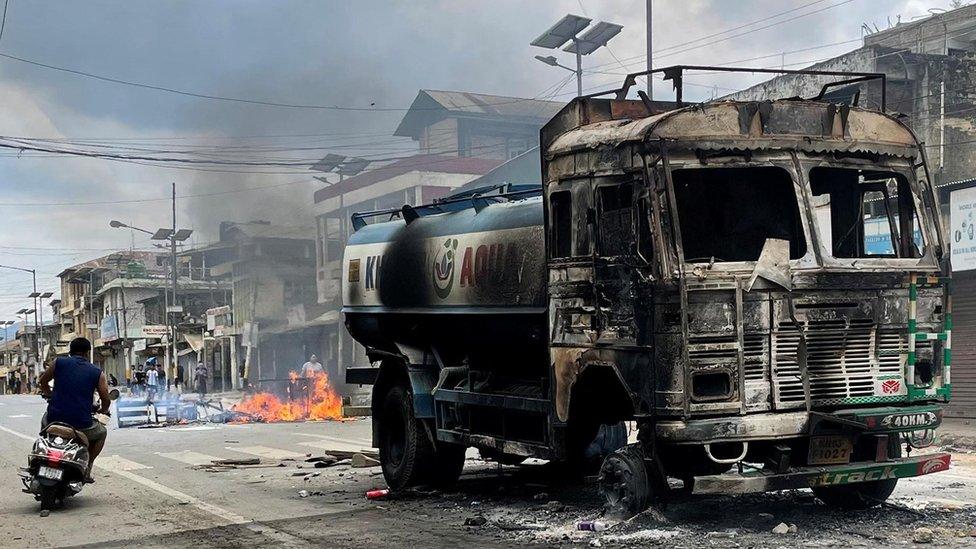
Violence broke out in Manipur in early May
Misinformation has been widely shared in the violence-hit state of Manipur in north-east India, despite attempts by authorities to quash it by restricting internet access.
The conflict between the majority Meitei community and the tribal Kuki minority recently made global headlines after a video of a mob of men assaulting and stripping two women went viral, sparking outrage in India and beyond.
Warning: This article contains details some readers may find distressing
False claims about sexual violence
Attacks on women have been a particular source of false and misleading claims, dating back to the upsurge in violence in Manipur in early May.
The authorities shut down mobile internet services as soon as clashes began on 3 May to stop the spread of "disinformation and false rumours, through various social media platforms".
A day later that was extended to include all internet services in the state.
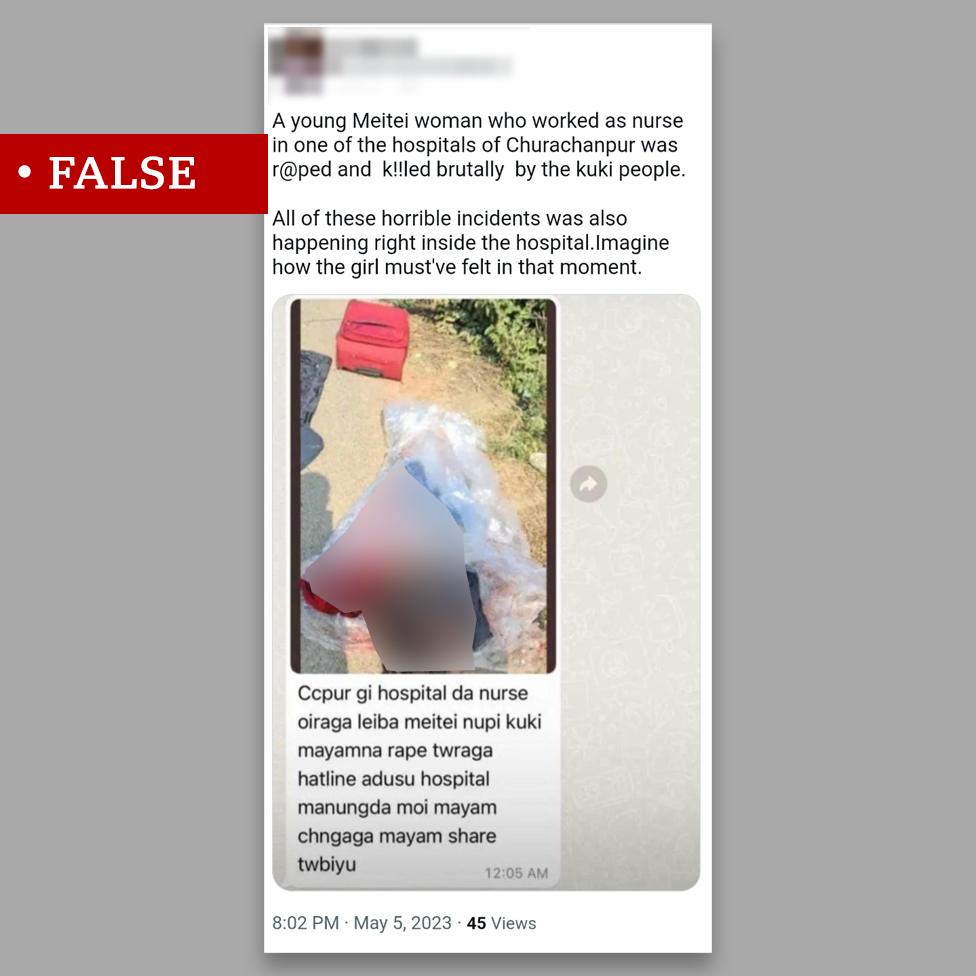
But by then a graphic image of the body of a woman, wrapped in a plastic bag, incorrectly said to be a Meitei nurse who was raped and murdered by Kuki men, was already circulating.
Not only had the image appeared on social media, we have seen evidence of it also being shared on WhatsApp in the district of Churachandpur where clashes broke out on 3 May.
The claims surrounding the image are false because it not from Manipur at all. It is a photo of Aayushi Chaudhary, a 21-year-old woman who was killed in Delhi in November last year., external Similarly, a false claim emerged on 5 May on social media that the bodies of 37 Meitei women, who had been raped and killed, and the body of a seven-year-old Meitei child, were at the Shija hospital in Manipur's capital Imphal, awaiting post-mortems.
On Twitter, a number of posts repeated this claim, with almost identical wording. The posts were shared by newly-created accounts.
The BBC has also seen identically-worded text messages circulated in the local Manipuri language, as pictured in the example below. We've been told by journalists working in Manipur that, despite the mobile shutdown, it was still possible to communicate via text message.
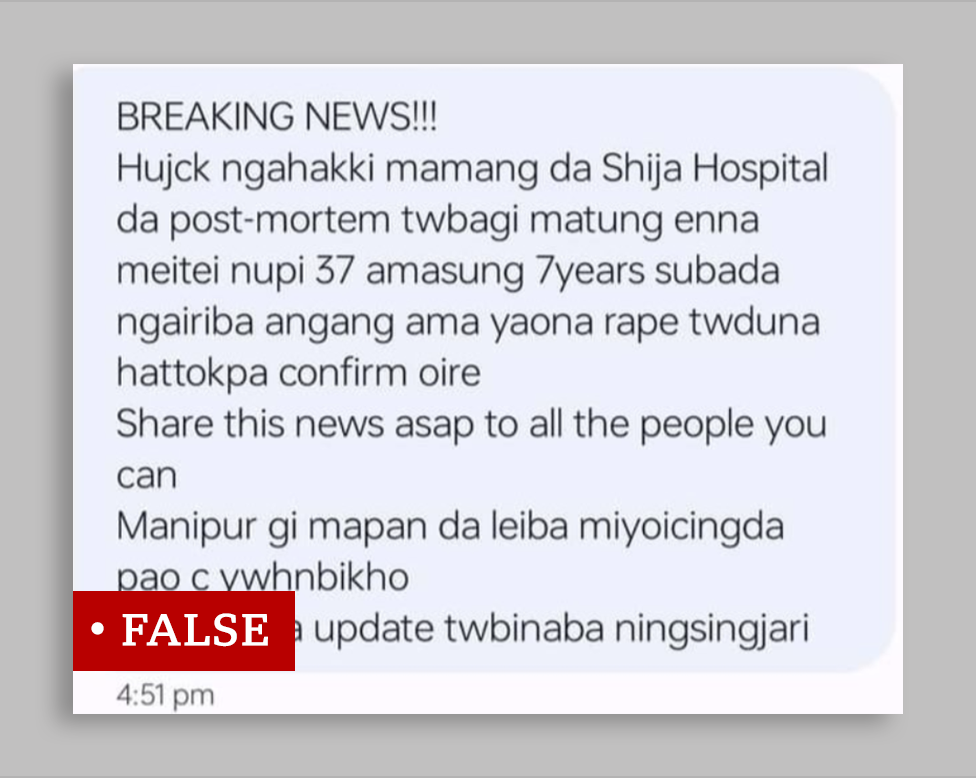
The claim is false.
The Shija hospital told the BBC it never happened, and that - as a private medical institution - they are not authorised to carry out post-mortems.
Myanmar not Manipur
There are other examples of false and misleading content, including a highly-graphic video of the assault and killing of a woman on a road, said to be in Manipur.
In late June, this video began to be shared with the hashtag #Manipur, and received thousands of views - with some claiming it showed the killing of a Kuki woman by armed men, presumed to be from the Meitei community.
It resurfaced a week ago, with the same claim, amid declarations that it took place in Manipur.
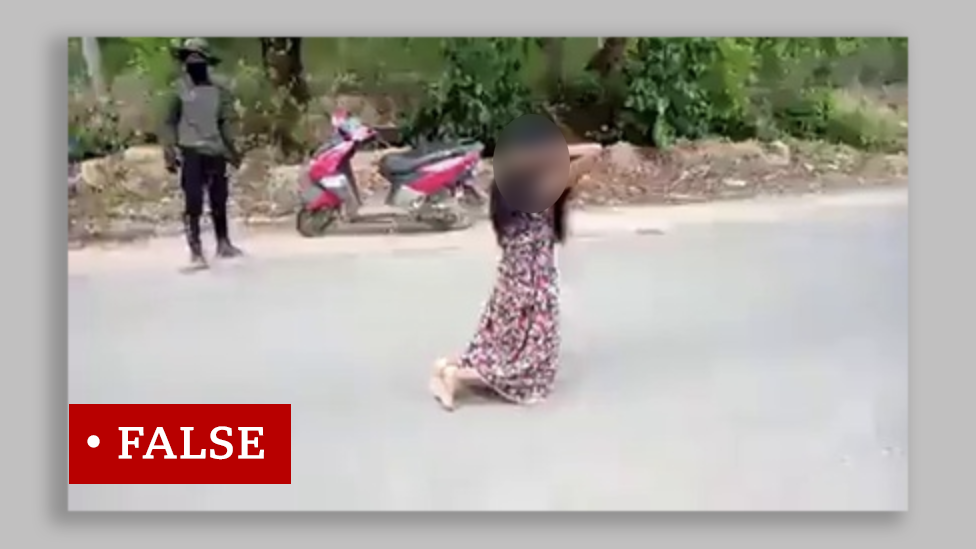
Once again the claims are false.
The video is not from Manipur, and the victim is not a Kuki woman.
It is from neighbouring Myanmar and the incident happened in June 2022 - well before the Manipur clashes began - and has been debunked by an Indian fact-checking site.
We can't be sure how widely this video was shared, but it was circulating within Manipur because the state police warned publicly that action would be taken against anyone sharing it.
Wrong information about arrest
Misinformation has continued, even after the Manipur violence hit the headlines on 19 July - when the video emerged of the mob attack on two women from the Kuki community, from early May.
The following day, claims spread that a Muslim man had been arrested for his alleged involvement - those sharing this included a politician from India's ruling BJP party, Tejinder Pall Singh Bagga.
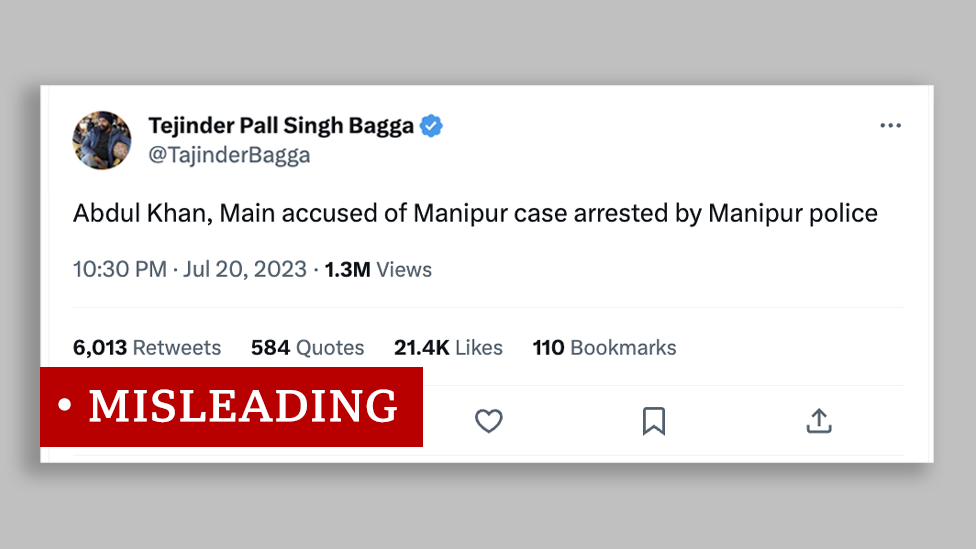
Mr Bagga's tweet had more than a million views, and thousands of re-tweets, and referred to the man as the "main accused of [the] Manipur case" - with 'the Manipur case' widely understood to refer to the attack on the two women.
But this was misleading as, although Manipur police did arrest a Muslim man that day, it was for something completely different.
The police have made clear the arrests took place in different locations; they did not link the Muslim man with the assault on the women.
The news agency, ANI, which also incorrectly reported the arrest of this man in connection with the mob attack later corrected itself, blaming their mistake on the "erroneous reading of tweets" from the police.
Allow X content?
This article contains content provided by X. We ask for your permission before anything is loaded, as they may be using cookies and other technologies. You may want to read X’s cookie policy, external and privacy policy, external before accepting. To view this content choose ‘accept and continue’.
However, Mr Bagga, from the BJP, has so far neither corrected nor clarified his original tweet, nor has he responded to questions about it from the BBC.
Additional research by Ahmed Nour

